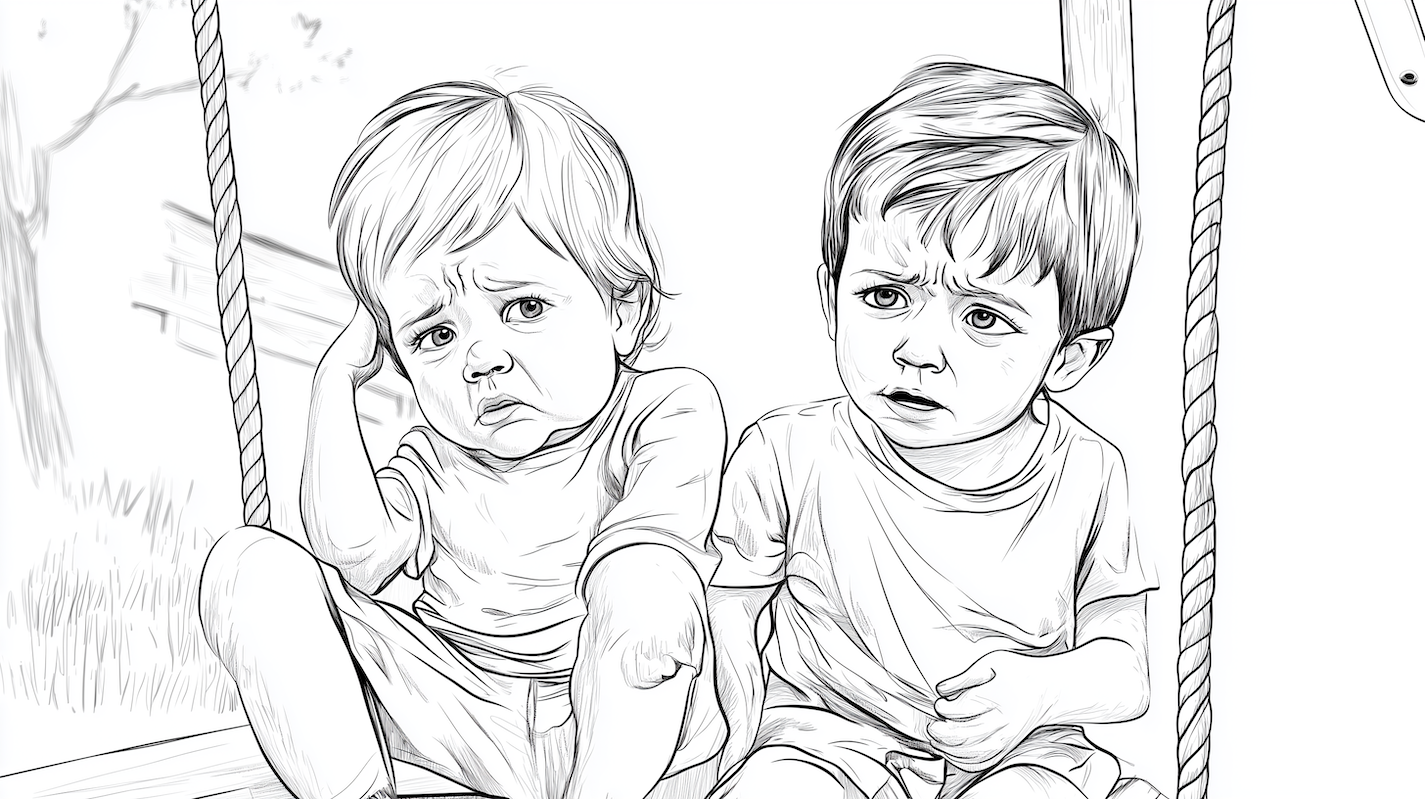Empathy

Don't Ask Preschoolers to Say "Sorry."
If you’ve ever tried to make a preschooler say “Sorry,” you’ve probably seen them mumble it into their chest or say it cheerfully, as if they just won a prize. That’s because young children don’t grasp what an apology means. They’re still figuring out their emotions and have limited awareness of how their actions affect others. As an adult, you naturally associate “sorry” with remorse, but for a preschooler, it can easily become just a magic word to get them out of a spot. Saying the word “sorry” doesn’t mean they understand it—and if you focus on making them say it, you miss the chance to help them mean it.
There Is Always a Reason:
- They don’t always know they’ve done wrong: Young children are still learning cause and effect. If they push another child, they may not connect that action to why that child is unhappy or crying.
- Empathy is still developing: Understanding other people’s emotions takes time. A preschooler isn’t ignoring feelings on purpose; it’s just a skill that develops over time.
- They learn by observation, not commands: Just as you wouldn’t expect a toddler to write an essay after being handed a pencil, you can’t expect them to understand apologies simply because you told them to say sorry. They need to see it in action, multiple times.
- They don’t know what else to do: In situations where a child has made someone cry or caused a problem, they may freeze—not because they don’t care, but because they literally don’t know what to do next.
Here's What I've Found Works:
- Model what you want to see: If your child hurts another and causes them to cry, don’t force an insincere apology. Instead, apologize to the other child yourself: “I’m sorry that hurt. Let’s check if you’re okay.” Your child will learn by watching you.
- Explain the situation simply: Take your child aside and say something like, “She’s crying because it hurt when you pushed her.” This helps them connect actions and emotions.
- Help them express themselves: Instead of forcing an insincere apology, guide them: “Can you ask if they’re okay?” or “Would you like to give them a hug or help them feel better?” Actions teach better than words.
- Acknowledge their emotions too: If your child is upset, recognize it: “It looks like you’re frustrated. Let’s take a deep breath and talk about it.” Helping them process their own emotions lays the foundation for recognizing others’ feelings later.
- Focus on making amends (repairing): Shift the focus from saying sorry to doing something to help fix the situation or make the other person feel better. “What could we do to help Sam feel better after his tower fell?” This teaches responsibility and restorative action.
- Praise empathy: Instead of focusing on the word “sorry,” praise behavior that demonstrates empathy in lieu of an apology. “I saw that you helped her get up. That was really kind.”
- Practice through storytelling or pretend play: Use puppets or dolls to act out small conflicts. “Teddy bumped Bunny. What can Teddy do?” This lets your child explore empathy in a low-pressure way.
Common Challenges:
- Other adults expect it: In settings where other adults expect an apology, acknowledge it while sticking to your approach: “We’re working on understanding what “sorry” means right now, so instead of just saying it, we’re going to…”
- They keep repeating the behavior: Real learning needs repetition. Each time, calmly point out the impact of their actions and reinforce empathy. Consistency is key.
- Your child refuses to engage or make amends: Avoid forcing interaction. State the observation simply: “It looks like you’re not ready to help right now.” Continue to model care for the hurt child yourself.
- The other child doesn’t accept the apology/amends: Validate both children. “It’s kind of you to offer a hug. Tilly, it looks like you’re still feeling too sad for a hug right now, and that’s okay.” Explain to your own child, “Sometimes people need a little more time to feel better, even after we try to help.”
Look on the Bright Side
When feelings are hurt, it’s easy to want your child to say “sorry” right away. But at their age, they’re not trying to be rude or heartless—they just don’t fully understand the meaning of the word yet. What matters most is teaching your child to connect their actions to others’ feelings and to show them what an apology looks and feels like—not just how it sounds. This takes time, patience, and repetition. You’re building the foundation of empathy, not just social niceties. You’re not teaching your child to say sorry; you’re teaching them why it matters.
Struggling with apologies is a stage. It’s normal.
●●●
